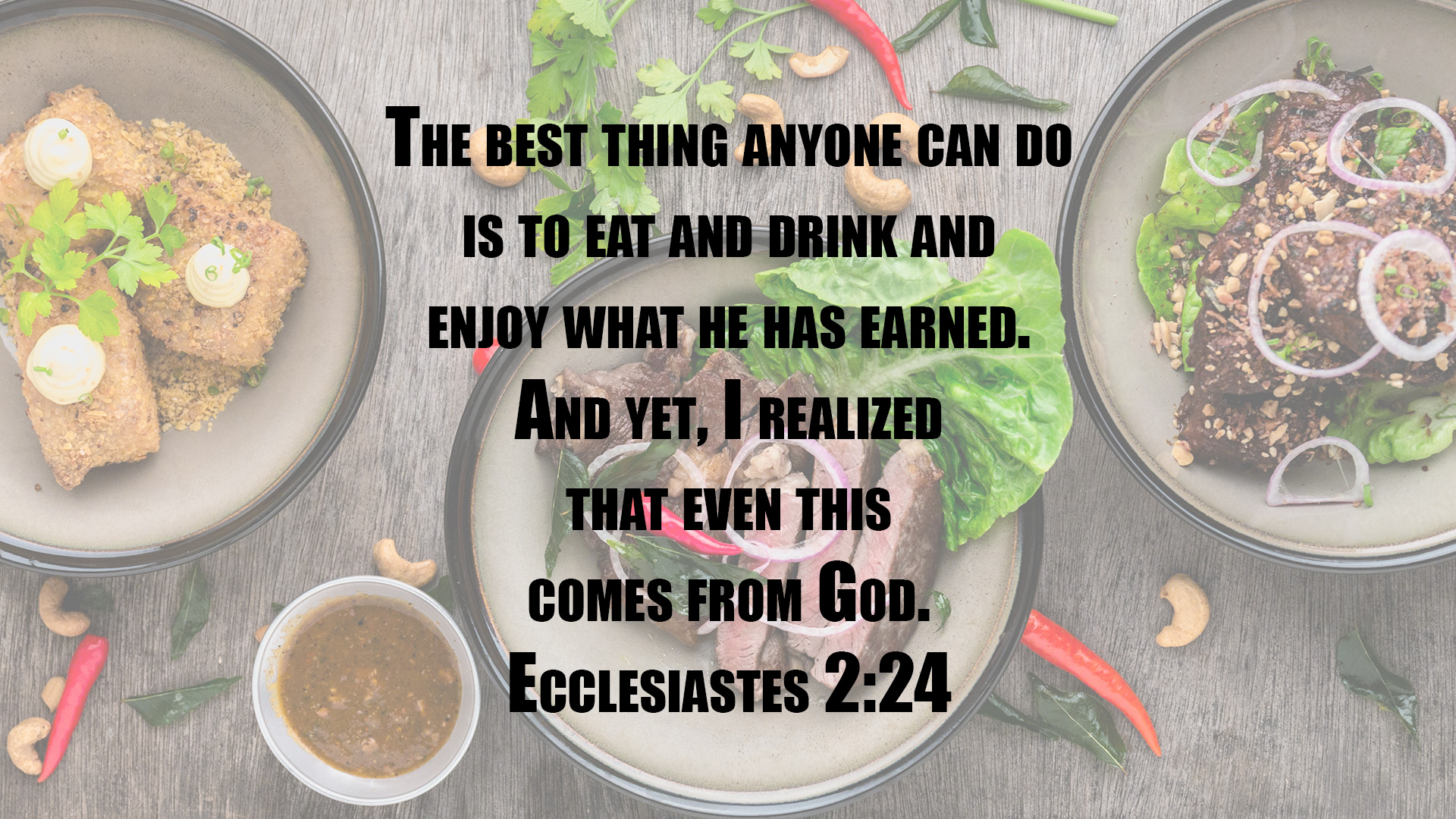Pleasure and Wisdom
Ecclesiastes 2:
In Ecclesiastes 2, the author explores the pursuit of pleasure and wisdom, ultimately finding them insufficient for lasting satisfaction. How does the gospel offer a different kind of fulfilment that transcends earthly pleasures?
Pure pleasure will not fully satisfy us because we are made in the image of God.
How do we balance enjoying life’s pleasures while maintaining our relationship with God? In this Bible study on Ecclesiastes chapter 2, we explore Solomon’s reflections on life’s pursuits - pleasure, wealth, knowledge, and achievements - and his ultimate conclusion about their emptiness when disconnected from God. Solomon, considered the wisest man who ever lived, tested everything “under the sun” and found that without proper priorities, even good things can leave us feeling empty. This study challenges us to examine what truly deserves first place in our lives and reminds us that every area of life must be approached with the wisdom from above.
Then I considered all that my hands had done and the toil I had expended in doing it, and behold, all was vanity and a striving after wind, and there was nothing to be gained under the sun. Ecclesiastes 2:11
Pure pleasure will not fully satisfy us because we are made in the image of God and there's that part of us of which a lot of preachers speak of there's a God hole in our alliance and if God has fills that hole he controls the hole.
- The phrases “under the sun” and “under the heaven” appear over 30 times in Ecclesiastes, emphasizing earthly perspective.
- Christians should neither withdraw from the world completely nor become “misery characters” - Christianity isn’t meant to be joyless.
- Enjoyment isn’t wrong, but must be kept in proper priority with God first.
- Three areas of potential distraction discussed:
- Parties: Can be enjoyed but should include thankfulness to God
- Hobbies: Good but can become all-consuming and lead away from fellowship
- Sports: Useful but can take priority over spiritual commitments if not careful
- Wealth (enriching ourselves) isn’t inherently wrong, but “the love of money is the root of all evil.”
- Wealthy Christians can use money for God’s kingdom
- We can’t take wealth with us when we die
- We can “lay up treasures in heaven” by using finances to serve God
- Deep exploration and knowledge (mental enrichment) is good but shouldn’t be our highest priority.
- Being “enclosed” and isolated contradicts Christian fellowship - we’re all part of one body.
- Without proper priorities, all pursuits end in emptiness and futility.
- The ultimate priority should be “Seek ye first the kingdom of God” (Matthew 6:33).
For to the one who pleases him God has given wisdom and knowledge and joy, but to the sinner he has given the business of gathering and collecting, only to give to one who pleases God. This also is vanity and a striving after wind. Ecclesiastes 2:26
I've read my bible through from cover to cover at least 50 times and yet I'm still finding things that are new and fresh.
Without proper priorities centered on Christ, even enjoyable pursuits leave us feeling empty. Jesus is our ultimate example - we are to follow in His footsteps, prioritize His kingdom, and live as He would have us live. Jesus taught us about storing treasures in heaven rather than on earth and gave us the model for setting proper priorities. While not directly discussing Jesus’s role in salvation within this particular study, the message is clear that our relationship with Jesus Christ should be the priority that shapes all other aspects of life. As Christians, we are called to enjoy God’s gifts but always remember that seeking His kingdom first brings true fulfillment that pleasures, wealth, and knowledge alone can never provide.
- Ecclesiastes 2:
- Ecclesiastes 2:1-3
- Galatians 5
- Ephesians 2
- Hebrews 11:25
- 2 Timothy 3:4
- Matthew 6:33
- 1 Timothy 6:10
- Matthew 6:21
Bible References
Online GOI Bible Studies
Contact us now for details of online bible studies this week.




